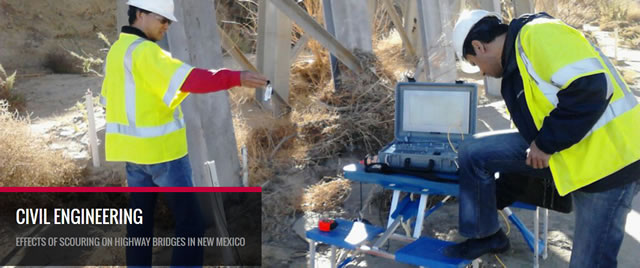
Civil Engineering ETDs
Publication Date
Summer 7-14-2024
Abstract
Construction materials require testing in the laboratory and field to be accepted as viable tools. Engineered cementitious composites (ECC) are a new material in the class of ultra-high-performance concrete studied and tested in the lab but not in the field. This research aimed to answer questions about ECC's ability to be a viable and cost-efficient construction material. The cost of ECC continues to be a factor in the acceptance of the material. Cost savings in construction and labor have not been identified until now, and it is good. Field condition testing of ECC in a desert climate known for extreme ultraviolet sun exposure, high winds, and low humidity has not been extensively explored until now, and it is bad. The objective of this work required numerous approaches to determine how the material faired in such an environment or the possibilities of why it failed.
Keywords
ECC, Construction Costs, Curing in a Desert Environment, UV Radiation, PVA
Document Type
Dissertation
Language
English
Degree Name
Civil Engineering
Level of Degree
Doctoral
Department Name
Civil Engineering
First Committee Member (Chair)
Susan Bogus Halter
Second Committee Member
Maryam Hojati
Third Committee Member
Fernando Moreu
Fourth Committee Member
Ali Kazemian
Recommended Citation
Anderson, Michele M. and Michele M. Anderson. "Engineered Cementitious Composites: The Good, The Bad, and The Possibilities." (2024). https://digitalrepository.unm.edu/ce_etds/339
